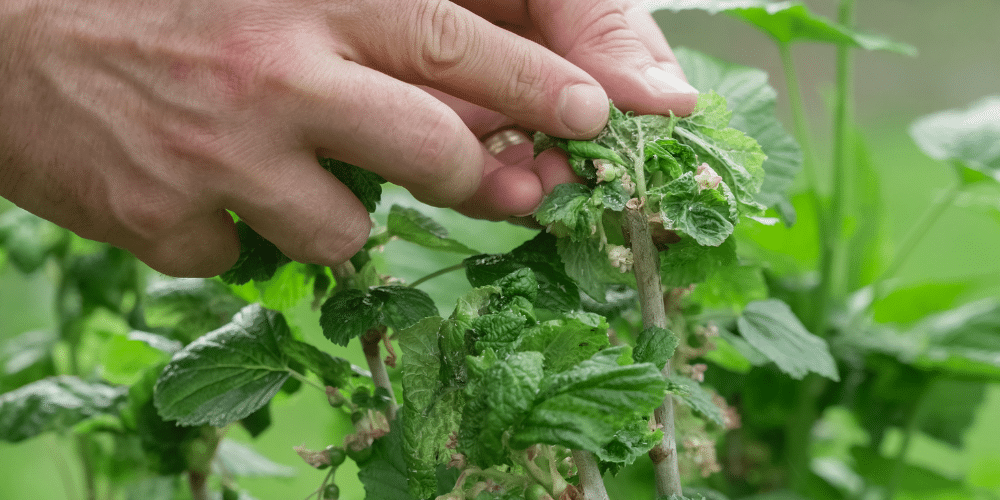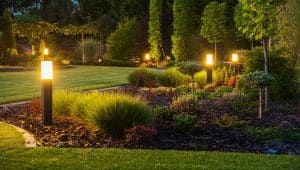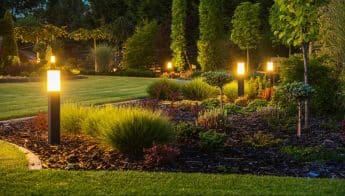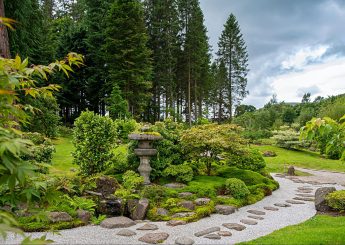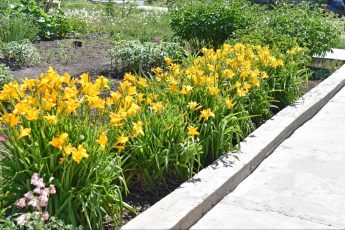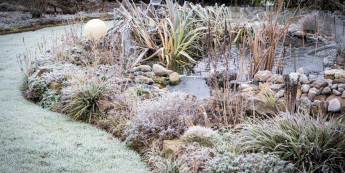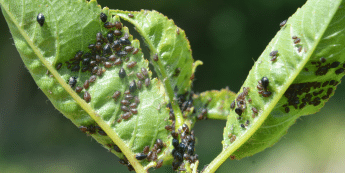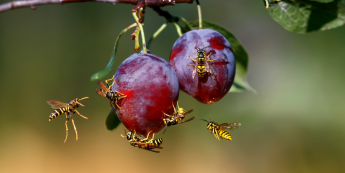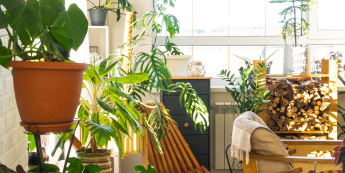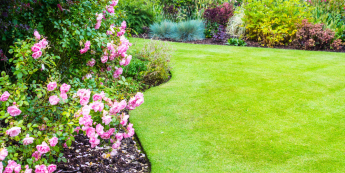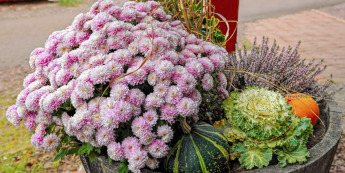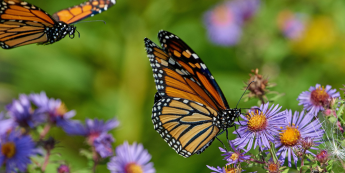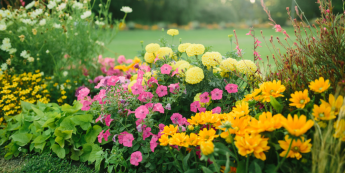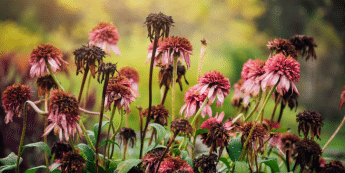If you’re struggling with aphid infestations but don’t want to resort to nasty pesticides, you’re probably wondering how to get rid of aphids naturally. Instead of waging a full-scale war on these sap-sucking pests, let’s explore sustainable ways to manage them without being too hard on your plants, or the ecosystem. From inviting in garden superheroes to setting up aphid-repelling defences, we’ll walk you through how to keep your garden balanced and thriving with natural pest control for aphids!
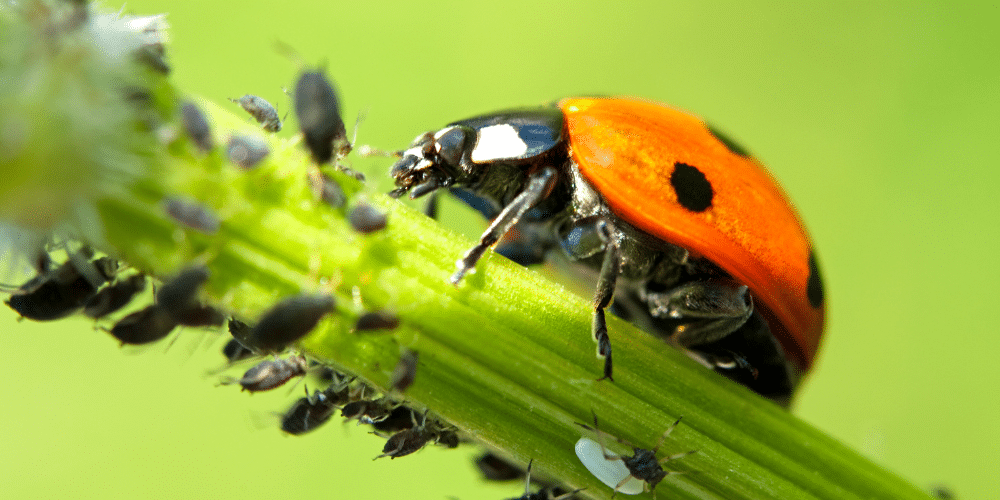
Meet the Aphid Avengers!
If aphids are causing chaos in your garden, nature already has a solution that doesn’t involve spraying harmful chemicals all over your beloved plants: the aphid avengers!
There are many beneficial insects you should attract into your outdoor spaces this fall that will make quick work of those pesky pests. Ladybugs, lacewings, and parasitic wasps love aphids; however, the key is to build a welcoming habitat for them so they’ll want to stick around and snack on pests all day. Here are a few simple steps to help you roll out the red carpet for them:
- Plant flowers with a long bloom period like dill, fennel, and yarrow to provide abundant nectar sources for our beneficial friends..
- Create cozy hiding spots using mulch and rocks to encourage parasitic wasps.
By encouraging biodiversity in your garden, you’re not just helping the ladybugs and their friends; you’re keeping your entire garden ecosystem healthier. When these pest warriors show up, aphid populations don’t stand a chance!
Aphid-Repelling Plants: Your Garden’s Natural Shields
Why fight aphids when you can simply plant them away? Certain plants—especially garlic, chives, mint, and marigolds—act as natural aphid repellents, giving your garden an extra layer of defence that requires zero effort once established:
- Garlic and chives produce a strong smell that aphids can’t stand, making them ideal companions for susceptible plants.
- Mint works in a similar way; while it’s spreading its refreshing scent, it’s also keeping aphids at bay.
- Marigolds, meanwhile, are a bright, cheerful way to add some natural armour to your garden.
Place these plants near your more aphid-prone species, like roses or tomatoes, for maximum protection. Not only do these aphid-repelling plants help deter infestations, but they also add a vibrant and functional element to your overall garden design. They’re nature’s way of telling aphids, “You shall not pass.”
Eyes Wide Open: Why Regular Check-Ins Matter for Edmonton Garden Pest Control
Aphids may be sneaky, but staying one step ahead is easy when you know what to look for. One of the simplest and most effective ways to manage aphid populations is through regular monitoring. Think of it as a weekly garden check-up to make sure everything’s running smoothly. Take a stroll through your garden, lifting leaves and inspecting stems for signs of aphids, like tiny clusters of green, black, or white insects. A small population of aphids isn’t necessarily a cause for concern; in fact, a healthy, diverse garden can usually tolerate a minor infestation and this step is actually crucial for maintaining balance and supporting your garden’s broader ecosystem.
If aphid numbers start to climb and you’re feeling stressed, it’s time for some gentle intervention. Steps to take to get a handle on increasing populations include:
- Assess your gardening practices. Healthy plants can withstand aphid infestations better than stressed plants. Are they receiving enough water and nutrients?
- Bring out the big guns – aka your beneficial insect army. Come see us at Salisbury to see if we have ladybugs in stock to bolster the troops!
- Manually remove the aphids by blasting your plants down with a strong spray of water, or wipe them off with gloved hands.
- Add a few sacrificial plants to your garden bed – distract the little critters with something far more tasty than your plants. Try adding nasturtiums in affected areas.
Aphid Attacks? Sometimes It’s Okay!
Brace yourself: sometimes, it’s okay to let aphids hang around. Yes, you read that right. In a resilient and diverse garden, accepting some damage is all part of the natural process. After all, nature isn’t about perfection; it’s about balance.
Your plants are stronger than you think. In most cases, they can recover from minor aphid damage without intervention. Aphids may feast for a little while, but your plants will bounce back if you have a healthy ecosystem in place, and you are maintaining good gardening practices. Those beneficial garden insects we talked about earlier will swoop in to clean up the mess, and your garden will thrive as a result.
So, the next time you see a few aphids hanging around, take a deep breath and remember that it’s all part of the process. You don’t need to win every battle—sometimes, nature takes care of itself. This laid-back approach also aligns with sustainable gardening practices by minimizing chemical interventions and allowing your garden to flourish as a naturally balanced ecosystem.
The Zen of Aphid Management
Hopefully, you now feel a bit more relaxed about aphids in your garden and are willing to let nature do the work instead of jumping into full combat mode. Between calling in the aphid avengers, planting your garden’s natural shields, and keeping a close eye on things, you’ve got plenty of options to manage aphids sustainably, and don’t forget: a little damage is okay! Your plants will thank you for your calm, measured approach.
So, whether you’re dealing with an active aphid problem or are just planning ahead, remember to stay grounded; you’ve got this! Next time a friend asks how to get rid of aphids naturally, you can share your secret: sometimes, you don’t even need to.
If you need more friendly, expert gardening advice, come see us at Salisbury Greenhouse today, and we’ll help you get on your way to gardening greatness!

